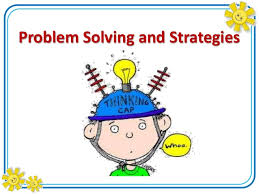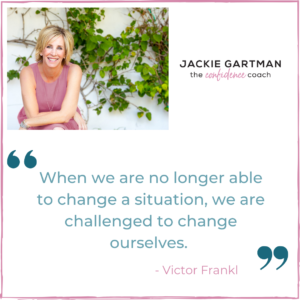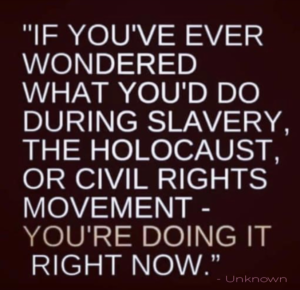
If you’re like me—and pretty much everybody else in the world—you sometimes run into a problem, challenge, or issue that just won’t seem to come unstuck and for which a ready solution doesn’t present itself. I’m not talking about the small stuff, like how to get dog wee wee out of carpet or why you seem to hit Every Freaking Red Light on your way across town (though I’m open to suggestions on either topic).
No, I’m talking about something more complex. For example, I, like many people, sometimes find being a solopreneur lonely and isolating. How, I ask myself, can I make more outside social connections while maintaining my coaching practice?
Faced with issues like this, my left-brained, logical clients make pro and con lists and let logic lead. The right-brainers go with their gut. Neither is a bad way to go about it, but that’s not really problem-solving, it’s more about making choices.
And both can be also surprisingly limiting. What’s wanted, here, is a way to open up both left and right sides of the brain. A way to make, if you will, an informed leap into the unknown. It involves taking a look at what has worked for you in similar situations in the past, reminding yourself of those previous successes, and taking action in the present moment with—and this is key—without being attached to a specific and detailed outcome. Hint: a great question to hold in your mind is, “What else is possible?”
Want to play? The following steps are the same ones I walk my clients through. I’ve given my own responses as a template for yours.
1. Write down 3 goals you’ve achieved, challenges you overcame, or experiences you’ve had that make you feel most proud (i.e., earning a college degree, planting a vegetable garden, learning a new language, placing an ad on OkCupid, parenting six children and surviving).
a. My example: earning my black belt
b.
c.
2. Write down three things that you gained from having had that experience, having achieved that goal, or having met that challenge (i.e., learning a new skill, felt more in control, increased job satisfaction, enjoyed more honest communication with your spouse, etc.).
a. My example: gained confidence
b.
c.
3. Name a minimum of three things that would not have occurred if it weren’t for this experience (wouldn’t have married my partner, wouldn’t have had six kids, wouldn’t know the best restaurant in Paris, wouldn’t have lost weight, etc.).
a. My example: I wouldn’t have met my dear friend Mary
b.
c.
4. Write down three things you believe were essential to achieving that goal, having that experience or meeting that challenge. My three examples are below:
a. Patience. One step at a time
b. Being open and wiling to engage in whatever was going to happen in class that day
c. Not quitting when I bombed my green belt test. Using that experience to make me a better martial artist
d.
e.
f.
5. Name your current problem or challenge:
My example: Making outside social connections without sacrificing my coaching practice.
6. Now go back and review your responses to Question 4 – the key ingredients that you believe were responsible for accomplishing the goal or achievement of which you are most proud. How might you apply them to your current problem?
My example:
a. Being patient: I trained for four years for my black belt. It didn’t happen overnight. Likewise, finding and creating genuine and fulfilling social connections likely won’t be instantaneous, either. I remind myself to wait.
b. Being open: I never know what we could be doing in class. One day, we’d play basketball. The next, we’d run two miles up and down hills. Maybe the next class, we’d spar. In order to succeed, I had to learn to be open to doing things I couldn’t possibly prepare for, and things I might even dislike (like sparring my own friends). Establishing and cultivating nourishing friendships requires staying open to what comes.
c. Finally, not quitting on myself was critical to getting my black belt. As it happened, I bombed my green belt test—but I didn’t drop out. I took that experience and used it to become a better martial artist. When I think about how to build better quality social connections while maintaining my practice, I realize that I need to try many different things, some of which may be uncomfortable and some of which may be complete and utter failures. I may not like a certain person or that paint class, but giving up is never going to get me what I want.
When you review your past successes for hints at how to achieve future success, it puts you in loving problem-solving mode, as opposed to wallowing in fear, anxiety, impatience, or inertia.
Looking to make something new happen? Look to your past, learn from it, stay focused on the present, and detach from a detailed outcome of having things look a certain way or happen at a particular time.
And, hey, if you come across that doggie wee wee miracle cleaner, drop me a line?




